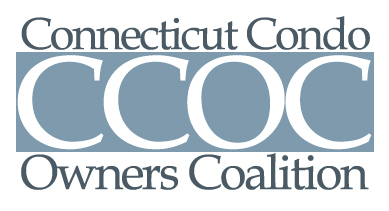Four Pillars Of Trust
“Trust me.” Upon hearing those words, most people search their backs to locate the knife.
Trust is earned through action, not by words or good intentions. Condominium boards are often described as being untrustworthy, sometimes with cause. Board members may be unaware of their responsibilities. Board members may be afraid of unit owners and the chaos resulting from multiple points of view.
How does a condominium board earn the trust of its unit owners? Here are the four pillars of trust.
Actions, rather than words.
Actions speak louder than words. It is the small actions that have the biggest impact over time. When a board makes promises to unit owners, it should keep them. If a change in circumstance requires an alteration to the plans, the board needs to be up front with the unit owners.
In a condominium, if charges are assessed for specific purpose, the money should be spent for that purpose. Insurance money should be used to effectuate repairs. Rules need to be enforced equitably and equally.
Transparency.
Secrecy or dissembling causes distrust. Once a board is caught in a lie, unit owners are suspicious. The Common Interest Ownership Act requires that board meetings be open to unit owners and that unit owners have a right to examine the records of the Association. Only a few matters need to be confidential.
The Board is acting on behalf of the unit owners. The Board is managing the unit owners’ money and property. If a board reacts in an offended or defensive matter, it promotes suspicion and the belief, rightly or wrongly, that the Board is hiding something. If the Board is trying to rebuild trust after some unfortunate incidents, transparency is key.
The ends don’t justify the means.
Some board members believe that they must get things done no matter what. They become blinded by the urgency of their objectives. Board members should act ethically and within the confines of the law and the condominium documents. Boards need to treat unit owners with respect and regard. They should never secretly engage in self-serving behavior or appear to be acting outside the of the scope of their powers. Board members should maintain as much decorum as they can.
Accountability.
Boards make mistakes. Board members are volunteers and ordinary folk. If the board makes a mistake, the board members should take responsibility, both as individuals and as board members. Unit owners will often forgive a mistake if the mistake is disclosed and rectified quickly. Rectifying mistakes, openly and transparently, promotes trust.
Trust must be earned. Retaining trust requires constant effort. A Board may never please all of the unit owners, but they can earn trust.
Pat Ayars is a Glastonbury attorney who specializes in condo issues. She is a member of the Connecticut Condo Association Advisory Committee.






So nicely said and true! I could write a book here on my 14 years experience living in a condo and also serving as a President, a board member and a unit owner/non board member. Seen both sides of the fence/wall.